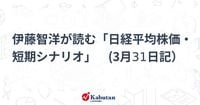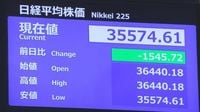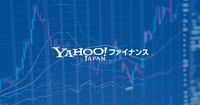On March 31, 2025, the Tokyo stock market experienced a significant downturn as the Nikkei average temporarily fell by over 1,500 yen, dropping below the 36,000 yen mark for the first time since March 11, 2025. The decline was largely attributed to concerns stemming from the U.S. market, where fears of inflation and economic slowdown triggered a wave of selling.
The Nikkei average reached a low of 35,500 yen during trading hours, marking its lowest point in approximately six months since September 2024. Almost all stocks listed on the Nikkei index saw declines, with semiconductor-related companies like Renesas Electronics and major automakers such as Toyota also facing significant losses.
Market analysts provided insights into the underlying factors contributing to the market's instability. Hirokazu Kabeya, chief strategist at Daiwa Securities, expressed concerns about the impact of U.S. tariff policies. He noted, "The instability due to U.S. tariff concerns is likely to continue until we see the full picture regarding upcoming tariff-related events, such as the announcement of reciprocal tariffs and automotive tariffs. The environment remains unpredictable, making it difficult to lean towards optimism or pessimism."
As the market reacted to the downturn in the U.S., investors adopted a risk-averse stance, leading to widespread selling across various sectors. The three major U.S. indexes had already fallen for three consecutive days prior to the Tokyo market's opening, with fears regarding inflation pressures reigniting and driving investors away from equities.
According to Takuma Ikemoto, a market analyst at Tokai Tokyo Intelligence Laboratory, the Nikkei average had broken through the psychologically significant support line of 36,000 yen without resistance, indicating a potential for further declines. He suggested that 35,500 yen could be the next target for the index, stating, "With no clear support levels in sight, further downward exploration is possible."
As the market braces for the introduction of reciprocal tariffs by the Trump administration, set to take effect on April 2, 2025, investor sentiment remains cautious. Yutaka Miura, another strategist at Daiwa Securities, pointed out that confidence in the Trump administration is waning, leading to increased selling pressure from investors. He remarked, "The market's trust in the Trump administration is steadily diminishing, and investors are moving towards liquidation of their positions."
Hitoshi Asakawa, a senior strategist at Asset Management One, noted that the growing concerns about stagflation in the U.S. are prompting investors to shift their focus from stocks to bonds. "As fears of high inflation coupled with economic stagnation rise, the shift towards bonds is becoming more pronounced," he stated.
Despite the current turmoil, some analysts believe there is potential for recovery if excessive caution subsides. Kabeya indicated that April typically sees increased buying activity from overseas investors, which could provide some support for the market. He added, "Given that the negative sentiment has been largely priced in, if excessive caution begins to ease, there may be room for a rebound in stock prices."
While the market grapples with uncertainty, the focus remains on how the U.S. economic policies, particularly those concerning tariffs, will unfold in the coming days. Investors are keenly awaiting the details of any economic stimulus measures that the Trump administration may announce, which could serve as a catalyst for market recovery.
As the situation evolves, the Tokyo stock market will likely continue to reflect the broader economic climate influenced by U.S. policies. The interplay between domestic factors and international market trends will remain crucial in determining the direction of the Nikkei average in the weeks ahead.









